Kosh Agarwal
UK
Speakers 2025
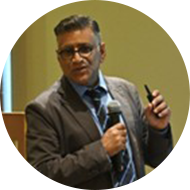
Kosh Agarwal BMedSci (Hons) MD FRCP
Consultant Hepatologist and Transplant Physician, Institute of Liver Studies, King’s College Hospital, London. Reader in Hepatology Kings College London.
Kosh Agarwal is a Consultant Hepatologist and Transplant Physician at the Institute of Liver Studies at King’s College Hospital in London, UK. Dr Agarwal is also Lead for the Regional Viral Hepatitis Program, at the largest treatment centre for viral hepatitis in the UK. He is a Clinical Director of the NIHR South London Research Delivery Network.
In 1991 Dr Agarwal graduated from Newcastle University, UK and his postgraduate training was undertaken in Newcastle with the majority of his clinical and research training at the Regional Liver and Transplant Unit. He also spent a year at the Division of Liver Diseases, Mount Sinai, New York, USA.
He is the London Lead for HCV elimination and has a strong clinic-academic research interest in ‘cure’ therapies for HBV and HDV, delivering a Phase 1 to Phase 3 portfolio.
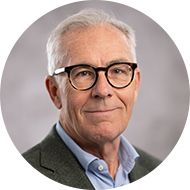
Jan Albert
Sweden
Jan Albert, MD, PhD – Professor of Infectious Disease Control, Sweden
Jan Albert is a Professor of Infectious Disease Control at the Department of Microbiology, Tumor and Cell Biology at Karolinska Institutet, and a Senior Consultant in Clinical Virology at the Karolinska University Hospital. His research focuses on molecular epidemiology and virus evolution, with a particular emphasis on HIV and respiratory infections. He has authored over 240 peer-reviewed scientific publications in these fields.
During the COVID-19 pandemic, Professor Albert chaired Karolinska Institutet’s expert advisory group, which provided strategic guidance to university leadership. In 2023, he was appointed by the Swedish government to lead a national inquiry on strengthening pandemic preparedness and infection control. In April 2025, he submitted an interim report proposing new legislation to enable faster, more proportionate public health responses, improved testing and contact tracing, and clearer responsibilities across government agencies.
Professor Albert has also led the microbiology unit at the Genomic Medicine Center Karolinska (GMCK), which uses advanced diagnostics using next-generation sequencing technologies. He is an experienced research supervisor and a widely recognized expert in national and international fora.
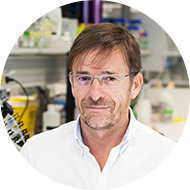
Jose R Arribas
Bolivia
- Head Internal Medicine Department. La Paz University Hospital
- Professor of Medicine. Autonoma University Medical School.
- Research Director of HIV and Infectious Diseases at La Paz Hospital
- Research interests include antiretroviral therapy, development of new aging biomarkers and emerging infectious diseases. Author of more than 400 scientific papers many of them clinical trials or antiretroviral therapy
- Former president of GeSIDA (Spanish Group for AIDS research)
- Former chair of the antiretroviral panel of the European AIDS Clinical Society (EACS)

Debbie van Baarle
The Netherlands
Prof. dr. Debbie van Baarle is professor in Immunology of Vaccinations at the University Medical Center Groningen since September 2020 and Topexpert at the Center for Infectious Disease Control (CIb) at the National Institute for Public Health and the Environment (RIVM) since 2003. She is an immunologist with specific expertise in the immune response to viral infections. Her main research interest is to identify critical features of the T-cell response associated with ‘protection’ from viral infection or disease progression in order to improve vaccination strategies. To this end she investigates memory CD8+ T cell responses. More recently, she is focusing on understanding changes in immune health as a consequence of specific exposures (including age and shiftwork) in relation to vaccine responsiveness and finding ways to improve immunity to vaccination in (older) risk groups. For the latter she is leading an H2020 IMI project on vaccination strategies for elderly (VITAL) which includes both induction of proper immunity to vaccinations, identification of biomarkers as well as communication on these strategies. Furthermore she is a leading immunologist in several large multicenter ZonMW funded clinical COVID19 vaccine studies in patient groups. Debbie van Baarle is (co-)author of over 240 scientific papers published in peer-reviewed, international journals (H-index: 53), which have been cited ≈ 9000 times. She successfully supervised 25 PhD students and currently has 5 PhD students in training, 3 postdocs and 2 technicians.
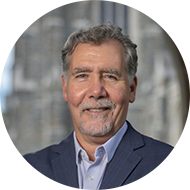
Chris Beyrer
US
Chris Beyrer, MD, MPH, an internationally recognized epidemiologist who has worked on the front lines of HIV/AIDS and COVID-19 treatment and research, became director of the Duke Global Health Institute in August 2022. He is the Gary Hock Distinguished Professor of Global Infectious Diseases at Duke, and a professor of Medicine in the Division of Infectious Diseases.
Beyrer has led collaborative research on HIV epidemiology, prevention and treatment in Southeast Asia, Sub-Saharan Africa, and Eastern Europe and Central Asia for more than 30 years. He is past president of the International AIDS Society, the world’s largest body of HIV professionals, and currently serves as an advisor to the U.S. President’s Emergency Plan for AIDS Relief (PEPFAR), the HIV Vaccine Trials Network, the World Health Organization, and Physicians for Human Rights. The author of over 440 scientific papers, he was named in 2022 to the annual list of the world’s most cited scientists.
Before coming to Duke, Beyrer was the inaugural Desmond M. Tutu Professor of Public Health and Human Rights at the Johns Hopkins Bloomberg School of Public Health, where he served as associate director of the JHU Center for AIDS Research and the Center for Global Health. He was the founding director of the Center for Public Health and Human Rights. He received his medical degree from SUNY Downstate Health Sciences University and holds a Master of Public Health from Johns Hopkins Bloomberg School of Public Health and completed his residency and fellowship training at Johns Hopkins. He was elected to the National Academy of Medicine in 2014 and serves on the Academy’s Board for Global Health and on the Committee for Human Rights.

Maria Buti
Spain
Dr. Maria Buti is a Professor of Medicine and Consultant in Hepatology at Hospital General Universitari Vall d’Hebron in Barcelona, Spain. She earned her medical degree from the University of Barcelona and a PhD in Internal Medicine from the Universitat Autònoma de Barcelona. With over 25 years of experience in the field of viral hepatitis, Dr. Butí has focused extensively on the diagnosis and treatment of hepatitis B and C. She has authored more than 450 peer-reviewed publications in leading journals such as The New England Journal of Medicine, The Lancet, and Journal of Hepatology. Dr. Butí is a former President of the Spanish Association for the Study of Liver Diseases and has held leadership roles within EASL, including Chair of Public Health and Policy (2020–2024). She has also served as an Associate Editor of the Journal of Hepatology and is an active member of several international hepatology societies, including EASL and AASLD.

Sara Cajander
Sweden
Sara Cajander, Clinician-Scientist specialized in Infectious Diseases, Senior Consultant Physician at the Department of Infectious Diseases, Örebro University Hospital, and Adjunct Associate Professor at the Faculty of Medicine and Health, Örebro University, Sweden.
Dr Cajander has a special research interest in the scientific field of sepsis immunology and Covid-19.

Olof Elvstam
Sweden
Olof Elvstam (MD, PhD) is a resident physician at the Department of Infectious Diseases, Växjö Hospital, and a post-doctoral researcher at the Department of Translational Medicine, Lund University, Malmö. His main current research interest is comorbidities and aging in people with HIV. Dr. Elvstam is a member of the steering committee of InfCareHIV.

Anthony Fauci
US
Anthony S. Fauci, M.D., was born in Brooklyn, New York, USA on December 24, 1940. He is currently Distinguished University Professor at Georgetown University School of Medicine, and McCourt School of Public Policy. His specialties are Immunology and Infectious Diseases. He formerly served as director of the National Institute of Allergy and Infectious Diseases at the National Institutes of Health from 1984 to 2022. Dr. Fauci was a key advisor to seven United States Presidents on global HIV/AIDS issues, and on preparedness against emerging infectious disease threats. He also served as the Chief Medical Advisor to President Joe Biden. Dr. Fauci was one of the principal architects of the President’s Emergency Plan for AIDS Relief (PEPFAR), which has helped save more than 25 million lives throughout the developing world.
Dr. Fauci is a member of the National Academy of Sciences, the National Academy of Medicine, the American Academy of Arts and Sciences, and many other professional societies. He has received numerous awards including the Presidential Medal of Freedom, the National Medal of Science, and the Mary Woodard Lasker Award for Public Service. He has been awarded 63 honorary doctoral degrees from universities in the United States and throughout the world, and is the author, coauthor, or editor of more than 1,400 scientific publications. His h-index is 238 as calculated by Google Scholar.

Sarah Fidler
UK
I am Professor of HIV Medicine working as a clinician scientist at Imperial College London, UK. My main research interests are the strategic use of antiretroviral therapy with novel immune modulatory treatments to treat and induce HIV remission and Cure. I have led large international clinical trials including SPARTAC, RIVER, RIO, all of which test the effect of initiating Antiretroviral treatment at the time of recent HIV acquisition with additional immune modulatory drugs towards curing HIV. I was co-chair of the HPTN071 (PopART) trial which demonstrated a significant reduction in HIV incidence following implementation of community led population based HIV test and treat program through a community randomised trial in Zambia and South Africa. I provide clinical care for people living with HIV with specific interest in those who have grown up with lifelong HIV, and people who control HIV without needing ART.
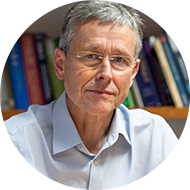
Paul Harrison
UK
Paul J. Harrison, is Professor of Psychiatry and Associate Head of Department (Research), Emeritus Fellow of Wolfson College Oxford, and Chair of the Oxford Neuroscience Committee. I trained in Oxford and London, and was a Wellcome Trust Senior Research Fellow before being appointed to my present post in 1997. My current research interests focus on the genetic neurobiology of bipolar disorder, the neuropsychiatry of COVID-19 infection, and the effects of vaccines on dementia risk. I have published over 370 papers and several books (Google Scholar h=105; 46,000 citations). I am Deputy Editor for Biological Psychiatry. I was President of the British Association for Psychopharmacology (BAP) 2014-2016. I have served on various funding committees, and chaired an NHS Research Ethics Committee. I have supervised 24 PhDs. Awards include the CINP/Paul Janssen Schizophrenia Prize (1998), the BAP Senior Clinical Psychopharmacology Prize (1999), the A.E. Bennett Award of the Society of Biological Psychiatry (2004), the Joel Elkes Research Award of the American College of Neuropsychopharmacology (2005), the CINP Lilly Clinical Neuroscience award (2010), the ECNP Clinical Neuropsychopharmacology award (2012), and the BAP Lifetime Achievement Award (2023).

Edward Holmes
Australia
Eddie Holmes is an NHMRC Leadership Fellow and Professor of Virology in the School of Medical Sciences, University of Sydney, Australia, which he joined in 2012. Eddie received his undergraduate degree from the University of London (1986) and his Ph.D. from the University of Cambridge (1990). Between 1993-2004 he held various positions at the University of Oxford, including University Lecturer in Evolutionary Biology and Fellow of New College. He was elected a Fellow of the Australian Academy of Science (FAA) in 2015 and of the Royal Society (FRS) in 2017. In 2021 he received the Australian Prime Minister’s Prize for Science, and he was recently awarded the 2024 Croonian Medal and Lecture by The Royal Society.

Pietro Lampertico
Italy
Professor Pietro Lampertico is Full Professor in the Gastroenterology, Director of the Gastroenterology and Hepatology Division, Head of the “A. M. e A. Migliavacca” Center for Liver Disease at the Fondazione IRCCS Ca’ Granda, Ospedale Maggiore Policlinico, University of Milan, Milan, Italy.
A 1986 graduate of the State University of Milan with degrees in medicine and surgery, Professor Lampertico completed his postdoctoral research in the Department of Experimental Pathology at Tulane University in New Orleans, USA. Upon his return to Milan, he completed specialisations in liver diseases and internal medicine. He received his PhD in clinical methodology from the University of Milan in 1998. In the Gastroenterology Unit, Professor Lampertico is primarily involved in the clinical management of chronic viral hepatitis outpatients, particularly those with CHB and CHD. His research interests include the treatment of patients with chronic hepatitis/cirrhosis due to HBV and HDV, the long-term outcomes of cirrhotic patients undergoing antiviral treatment, and the diagnosis and management of antiviral resistance to oral nucleos(t)ide analogues. Since November 2016, as Director of the Gastroenterology and Hepatology Division, he overlooks all the medical and scientific activities in the field of acute and chronic liver diseases, including liver transplanted patients.
Professor Lampertico is currently a reviewer for several top-ranked international journals. He is a member of AASLD, EASL and AISF and serves in the Editorial Board of prestigious journals.
He has spoken internationally about acute and chronic liver disease, specifically the natural history of virally-induced chronic hepatitis and antiviral treatment of HBV, HDV and HCV, and has published several articles and book chapters. He is currently involved in national and international phase1-4 clinical trials in HBV, HDV, HCV, MASLD/MASH, HCC, ACLF, ESLD, portal hypertension, cholestatic liver diseases and pre- and post-liver transplantation.
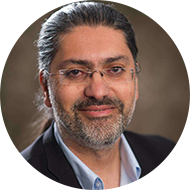
Ali Mirazimi
Sweden
Ali Mirazimi is a Professor at the Department of Laboratory Medicine. In addition to his academic position, he heads a section at the National Veterinary Institute (SVA) and serves as Senior Expert Scientist and Advisor at the Public Health Agency of Sweden (FoHM). He is also deeply engaged in shaping the virology research landscape as Chairman of the Swedish Society for Virology, Vice President of the International Crimean-Congo Hemorrhagic Fever (CCHF) Society, and advisory board member of the European Society for Virology, University of Gratz and the Bernard Nocht Institute for Tropical Medicine. Furthermore, he contributes to the WHO’s work on high-threat pathogens as part of its Priority Pathogens List team. He has coordinated four major EU-funded projects and currently leads three ongoing EU initiatives focused on pandemic preparedness and emerging viruses.
His research focuses primarily on emerging viral threats, particularly viral hemorrhagic fevers. He is internationally recognized for his work on high-risk pathogens such as Crimean-Congo Hemorrhagic Fever Virus (CCHFV), Ebola virus, and SARS-CoV-2. His studies span virus-host interactions, viral pathogenesis, and the development of diagnostics, vaccines, and antivirals. He has been heavily involved for accelerating vaccine and therapeutic development for neglected pathogens like CCHFV.
With over 150 scientific publications and more than 10,000 citations, his work has been featured in leading journals including Cell, Nature Microbiology, Nature Communications, Nature Immunology, The Lancet Respiratory Medicine, PLOS ONE and etc.

Chloe Orkin
UK
Professor Chloe Orkin is Professor of Infection and Inequities at Queen Mary University of London and Consultant Physician at Barts Health NHS Trust.
She specialises in therapeutics and has contributed to the licensing of medicines for HIV, viral hepatitis, and SARS-CoV-2. She is the global lead author for the first-ever long-acting injectable HIV therapy.
Chloe is an expert advisor to WHO Europe on mpox and COVID-19. During the multi-country mpox (monkeypox) outbreaks she established and led an international collaborative clinical network (SHARE-net) resulting in three global case series on mpox infection.
She directs the QMUL-based SHARE research collaborative for health equity.
Chloe was past President of the Medical Women’s Federation, past Chair of the British HIV Association, on the governing council for the International AIDS Society and a scientific advisor to the Medicines Patent Pool.

Roger Paredes
Spain
Roger Paredes, MD, PhD, is Head of the Department of Infectious Diseases at the Hospital Germans Trias i Pujol and PI of the Microbial Genomics Group at the IrsiCaixa AIDS Research Institute, Badalona, Catalonia, Spain. He obtained his MD, PhD degree in Medicine from the Autonomous University of Barcelona and specialised in HIV research at the Brigham & Women’s Hospital, Harvard Medical School, supported by a ”la Caixa” grant for postgraduate studies. His team at irsiCaixa was instrumental in evaluating the clinical utility of HIV-1 deep sequencing in both high- and low-income countries. Currently, his team is leading pioneering research into the role of the gut microbiome in the pathogenesis of HIV infection and chronic inflammation. He coordinates the Horizon 2020 MISTRAL project (# 847943) and is co-PI in three projects of microbiome in HIV, HPV and cancer funded by the Canadian Institutes for Health Research. Since the COVID-19 pandemic outbreak, Dr Paredes has been the Spanish National Coordinator of several NIH/NIAID-funded randomized clinical trials, including ACTT-1 and 2 and the ACTIV-3/TICO and STRIVE platforms, and has coauthored seminal publications on the role of different SARS-CoV-2 antivirals in preventing and treating severe COVID-19 in high-risk populations. Such studies have contibuted to define the current standard of care of COVID-19. Dr Paredes is co-Chair of the Scientific Steering Committee of the STRIVE (Strategies and Treatments for Respiratory Infections and Viral Emergencies) network. He is also member of the WHO HIVResNet Steering Group and the IAS-USA HIV Drug Resistance group. His department hosts the largest Long COVID Unit in Spain and is actively involved in the development of clinical trials to cure this disease.
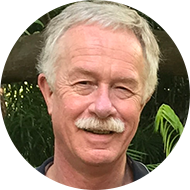
Paul Sharp
UK
Paul Sharp is an Honorary Professorial Fellow in the Institute of Ecology and Evolution at the University of Edinburgh. He held the Alan Robertson Chair of Genetics at the University of Edinburgh from 2007-2022, having previously held faculty positions at the University of Dublin (Trinity College) and the University of Nottingham. He has published on numerous topics in the field of molecular evolution, including extensive work on the evolution of HIVs and their relatives infecting other primates, and the origins and evolution of malaria parasites (Plasmodium species).
Paul was elected a Member of the European Molecular Biology Organization (EMBO) in 1992, a Member of the Royal Irish Academy in 1993, a Fellow of the Royal Society of Edinburgh in 2010, and a Fellow of the Royal Society in 2013. He was elected President of the Society for Molecular Biology and Evolution in 2008, and was awarded the Darwin Medal of the Royal Society in 2024.
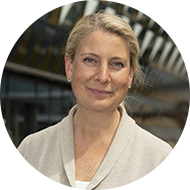
Anna Smed-Sörensen
Sweden
Anna Smed-Sörensen is a professor of Translational Immunology at the Division of Immunology and Respiratory Medicine, Department of Medicine, Solna, Karolinska Institutet, Stockholm, Sweden. She trained at Karolinska Institutet and NIH as a doctoral student and at Yale University and Genentech as a postdoctoral fellow.
Her lab studies viral infection and inflammation of the respiratory system in humans. In particular, her lab studies dynamics of innate and adaptive immune responses in the upper and lower airways during influenza virus infection to understand how immune events in the local tissue dictate disease severity and outcome.

Lorenzo Subissi
Switzerland
Lorenzo Subissi is the Team Lead (ad interim) for Emerging Threats Diagnostics in the Epidemic and Pandemic Threat Management department, within the Health Emergencies Programme at WHO. His current work focuses on control of pathogens with epidemic and pandemic potential and includes diagnostics preparedness, outbreak response, development of guidelines, coordination of laboratory networks, and monitoring of virus evolution.

Marius Trøseid
Norway
Professor Marius Trøseid is a senior consultant in infectious diseases and leads the Infectious Immunology research group at Oslo University Hospital. Trøseid has been actively involved in COVID-19 and pandemic research, as chief investigator for the pan-European platform trial EU Solid-ACT, and as member of the WHO Europe Clinical Expert group on COVID-19 and Mpox. The current research focus is the interplay between host, virus and microbes in respiratory viral infections and HIV, including studies on cure and comorbidities.
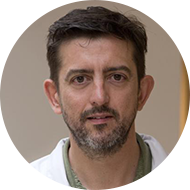
Linos Vandekerckhove
Belgium
Prof. Linos Vandekerckhove completed his medical degree at the KU Leuven Medical School in 1998 and went on to earn his Ph.D. in 2006 at the Rega Institute in Leuven. He seamlessly integrated his training as an infectious disease specialist with doctoral research in the Molecular Virology laboratory at the KU Leuven in Belgium. This unique blend of clinical expertise and molecular virology has allowed him to bridge the gap between Clinical Infectious Diseases, particularly in the context of the AIDS clinic, and fundamental research in Molecular Virology. In 2008, Prof. Vandekerckhove was awarded a clinical fellowship from the Flanders Scientific Institute, which enabled him to establish a foundational HIV research laboratory at Ghent University. In 2010, recognizing the importance of advancing HIV cure research, he embarked on a journey to one of the leading research groups in the United States: the Gladstone Institute, working under the auspices of Eric Verdin and Warner Greene. In recent years, his research group has spearheaded a platform for comprehensive tissue sampling from HIV+ patients, employing techniques such as leukapheresis, lymph node excision, and gut biopsies, all in collaboration with a patient-driven ’clinical research guiding group’. This pioneering initiative has gained recognition as a best practice in in-depth sampling. Within Europe, the group has been at the forefront of HIV quantification through dPCR platforms and has delved into extensive qualitative characterization of the viral reservoir.
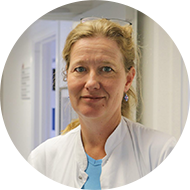
Anne Øvrehus
Denmark
Anne Øvrehus is an infectious diseases specialist and current head of department at Infectious diseases in Odense University Hospital Denmark. Her research and work has been centered around elimination of hepatitis C since 2014. She has a special interest in models of care for people who inject drugs and people with difficulties accessing care in general. Her department and the hepatitis team in the Region of Southern Denmark continues to offer outreach testing for HCV,HBV and HIV, including treatment and follow-up for people attending facilities caring for people who use drugs. The service also includes prisons and psychiatric facilities. She is part of Professor Peer Brehm Christensens group currently working on evaluating the Danish HCV elimination results and ensuring test and treatment is offered to all at risk populations.
